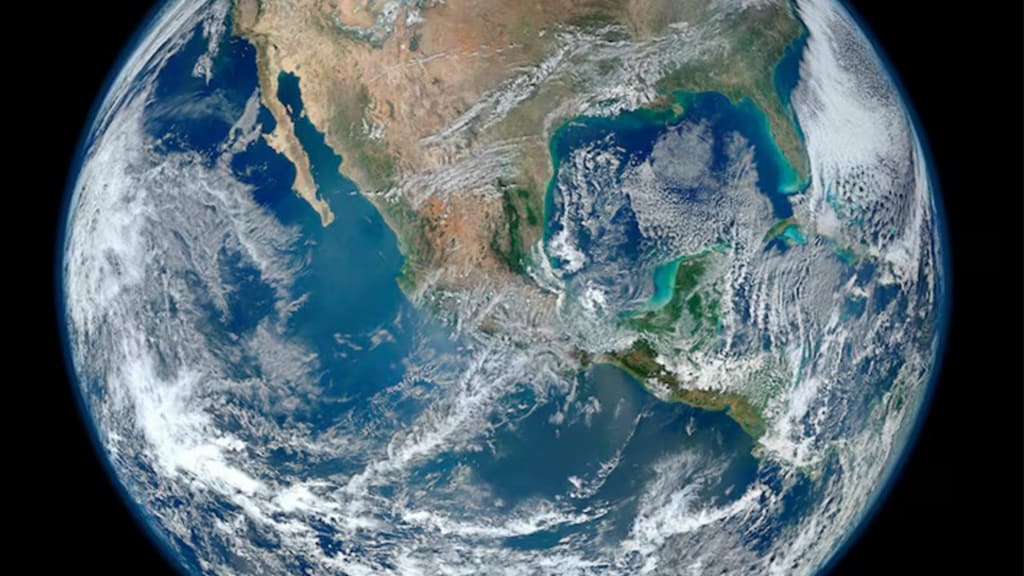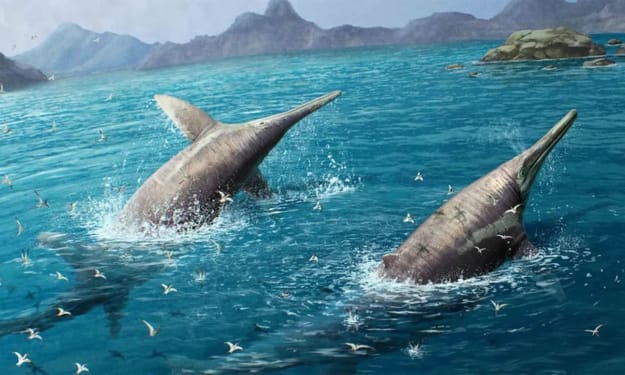Content warning
This story may contain sensitive material or discuss topics that some readers may find distressing. Reader discretion is advised. The views and opinions expressed in this story are those of the author and do not necessarily reflect the official policy or position of Vocal.
When's the next mass extinction?
When's the next mass extinction?

Humans will survive on earth for another 250 million years, but only if they stop burning fossil fuels immediately, reveals a bleak new study.
Computer simulations show that the planet might go through a global extinction that wipes out all mammals, report University of Bristol experts.
Any living things that still exist on Earth by this time will have to deal with temperatures ranging from 104°F to 158°F (40°C to 70°C), they say.
But their calculations don't account for greenhouse gases emitted by the burning of fossil fuels and other human-caused sources – so the date of our demise will likely be even sooner.
It would be the first mass extinction since the dinosaurs died out, around 66 million years ago, when the Earth was catastrophically hit by a massive space rock.
The new study was led by Dr Alexander Farnsworth, senior research associate at the University of Bristol's School of Geographical Sciences.
'The outlook in the distant future appears very bleak,' Dr Farnsworth said.
'Carbon dioxide levels could be double current levels.
Humans – along with many other species – would expire due to their inability to shed this heat through sweat, cooling their bodies.'
In 250 million years' time, all of Earth’s continents will have moved together to form a supercontinent known as Pangea Ultima, according to the researchers.
Earth's land would form a doughnut-shape with an inland sea in the middle – all that's left of the once-mighty Atlantic Ocean.
The surrounding Pacific Ocean, meanwhile, would take up the majority of Earth's surface.
Pangea Ultima is just one possible projection of what Earth's supercontinent could look like once the plate tectonics come together.
Whatever the exact alignment, scientists are sure Earth's continents will slowly merge to form one hot, dry and largely uninhabitable mass.
Tectonic processes in Earth's crust that brought the continents together would lead to more frequent volcanic eruptions, which would produce huge releases of carbon dioxide (CO2) into the atmosphere, further warming the planet.
Adding to this is another less well-known form of global warming – the natural brightening of the sun, which is steadily making the planets hotter and hotter.
The newly-emerged supercontinent would effectively create a triple whammy, comprising the continentality effect, hotter sun and more CO2 in the atmosphere, of increasing heat for much of the planet,' said Dr Farnsworth.
The result is a mostly hostile environment devoid of food and water sources for mammals.
'Widespread temperatures of between 40 to 50 degrees Celsius, and even greater daily extremes, compounded by high levels of humidity would ultimately seal our fate.'
For the study, the scientists used computerised climate models to simulate temperature, wind, rain, and humidity trends for Pangea Ultima.
To estimate the future level of CO2 the team used models of tectonic plate movement, ocean chemistry and more to map out inputs and outputs of CO2.
Researchers stress that they didn't factor in the contribution of CO2 emissions from burning fossil fuels, commonly cited as the largest cause of climate change today.
They estimated that CO2 could rise from around 400 parts per million (ppm) today to more than 600 ppm many millions of years in the future.
Of course, this assumes that humans will stop burning fossil fuels, otherwise we will see those numbers much, much sooner,' said co-author Professor Benjamin Mills at the University of Leeds.
Findings indicate only somewhere between 8 per cent and 16 per cent of land would be habitable for mammals, but likely all mammal species will be wiped out.
'Some specialised ones could survive potentially; however, it would still be a mass extinction of mammals either way,' Dr Farnsworth told MailOnline.
To make things worse, the supercontinent would be located primarily in the hot, humid tropics, so much of the planet could be facing hotter temperatures than many mammal species will be used to.
'We can't predict how long humans will exist for, however, should we assume that we do last that long such a future world would be inhospitable for us,' Dr Farnsworth added.
The academic said we might be able to survive if we built 'environmentally-controlled shelters with air conditioning'.
But we would likely have to build other facilities to house food production as well,' he said.
Another hope for humanity is forming civilisations on other planets in other solar systems, but this is currently only the stuff of science fiction.
'[Survival] will all depend on whether we can escape this planet, and if not, do we have the capacity to use geoengineering solutions to manage the climate,' Dr Farnsworth said.
Thanks all friends
About the Creator
Angel Malaika
hi i am angel malaika🤞 i love to write especially about technology i love to write in class i am 18 yrs old i have failed in school everyone please pray for me and subscribe my account and my posts friends Thank you all for sharing ❤️❣️
Enjoyed the story? Support the Creator.
Subscribe for free to receive all their stories in your feed. You could also pledge your support or give them a one-off tip, letting them know you appreciate their work.






Comments
There are no comments for this story
Be the first to respond and start the conversation.